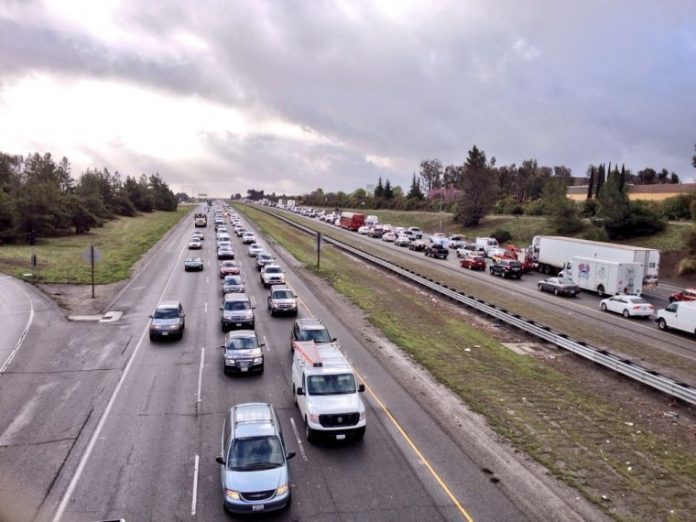The Santa Clara Valley Transportation Agency’s Measure B, a half-cent sales tax to fund transportation improvements, surpassed the two-thirds majority it needed to pass.
The measure received 297,270 yes votes, or about 71 percent of the total ballots cast, according to the Santa Clara County Registrar of Voters website.
“Measure B’s success is a tribute to the vision and values of Silicon Valley voters,” said Carl Guardino, CEO of Silicon Valley Leadership Group. “We don’t whine about traffic problems; instead, we find winning solutions to our traffic problems. The component parts of Measure B are like a jigsaw puzzle, in which each individual piece is important, but how it fits together leads to countywide congestion relief, meaningful transit alternatives and greatly needed improvements to repair and resurface our streets and roads.”
The Silicon Valley Leadership Group was the chief organizer of support for Measure B, which was also strongly supported by all members of the Morgan Hill City Council.
The half-cent sales tax will be collected countywide for 30 years, starting in the second or third quarter of 2017, depending on what the California Board of Equalization determines, according to Yes on Measure B spokeswoman Birgit Johnston. It will collect a total of $6 billion, which will fund a variety of road and street upgrades, repairs, maintenance and public transportation improvements.
The City of Morgan Hill is expected to receive $800,000 annually for pothole repairs from Measure B funds, and about $135 million for the Santa Teresa Boulevard/Hale Avenue extension around the west side of Morgan Hill.
The sales tax funds will also provide improvements at key highway interchanges, including at U.S. 101 and 25 in Gilroy; core transit service for people with disabilities, seniors, students and lower-income residents; finish the BART extension to San Jose; and improve Caltrain service to South County.
The timeframe for the allocation of the funds to South County will depend on the project, Johnston said. Local road repair funds will be provided in annual allotments, likely starting at the beginning of 2018.








